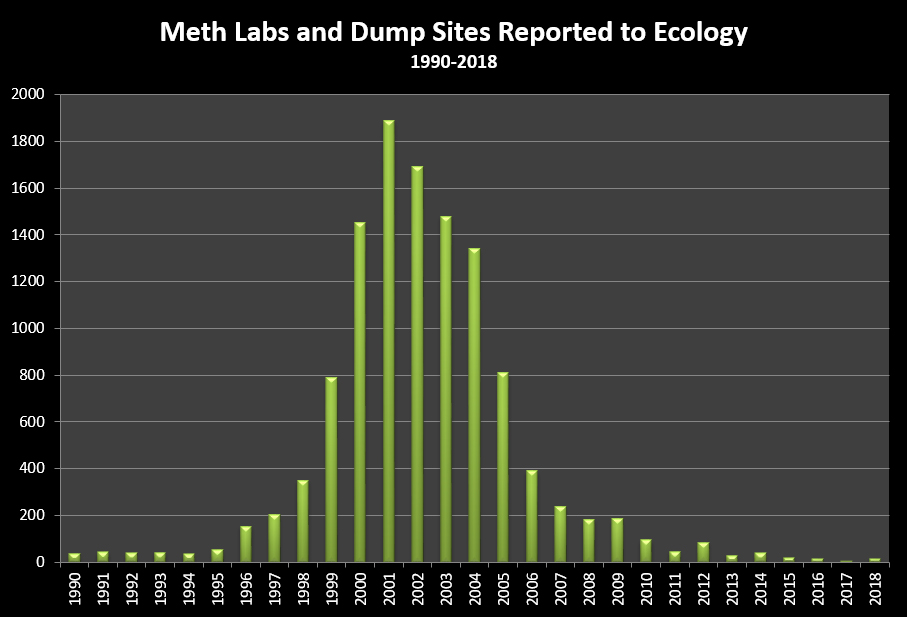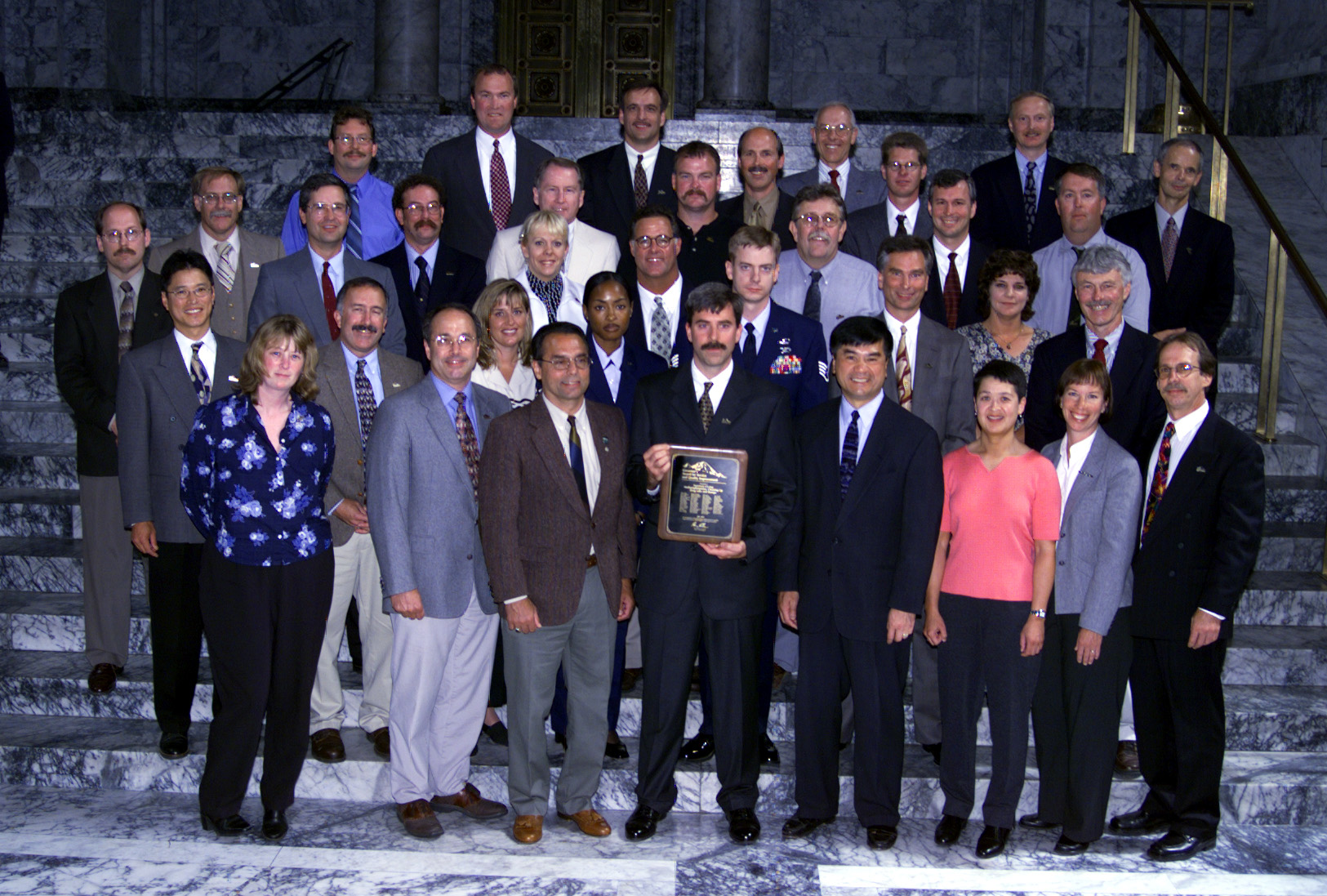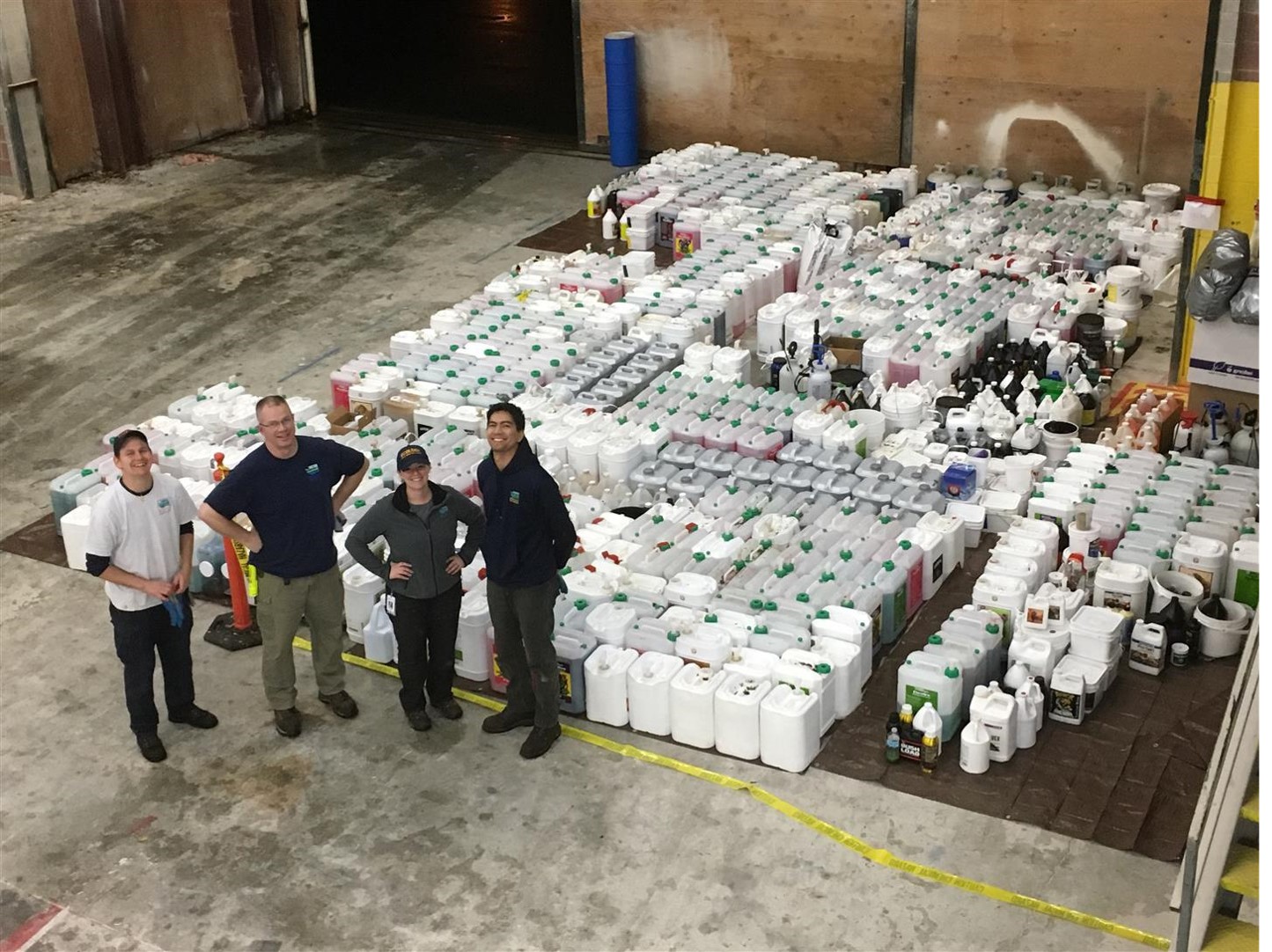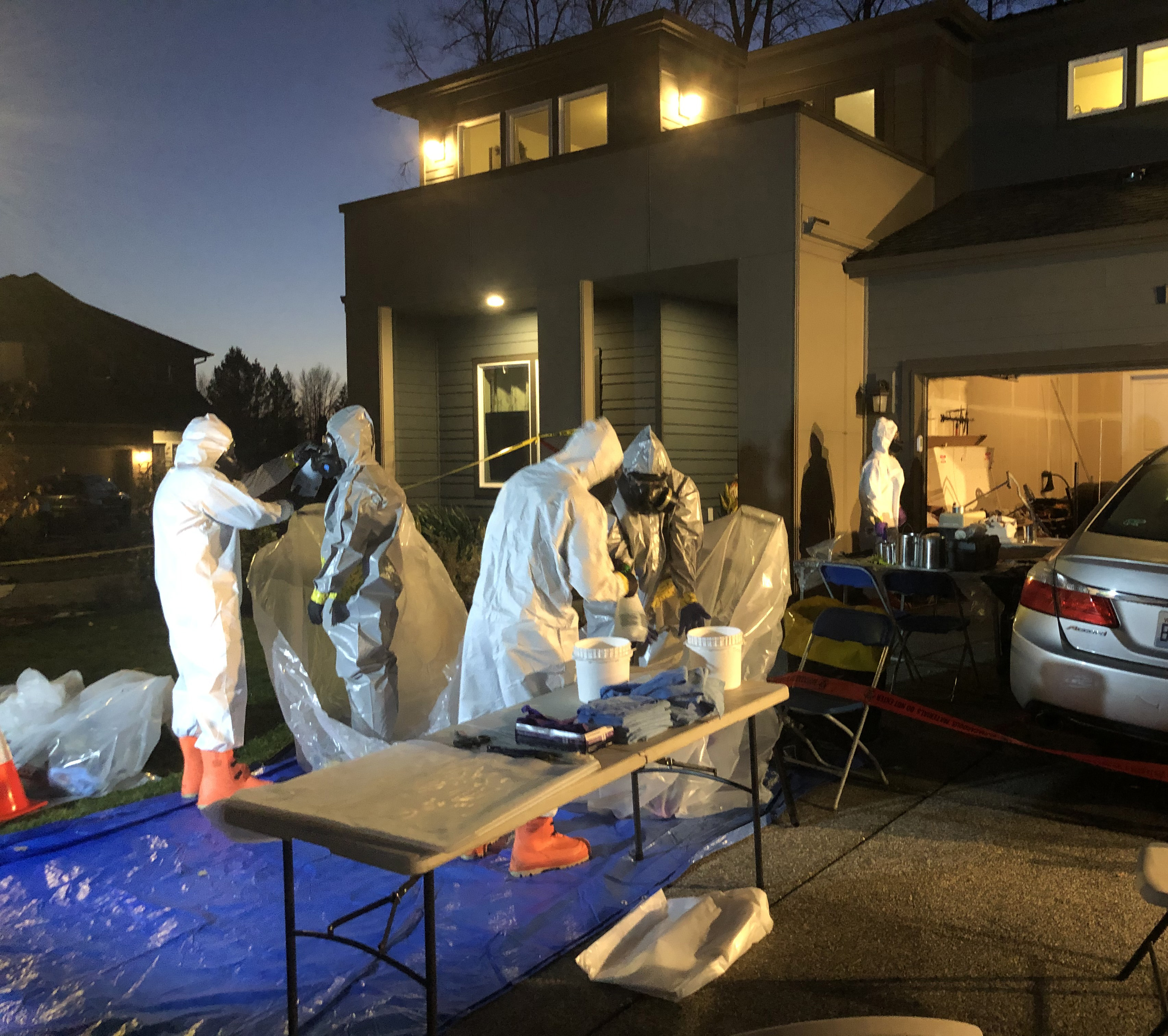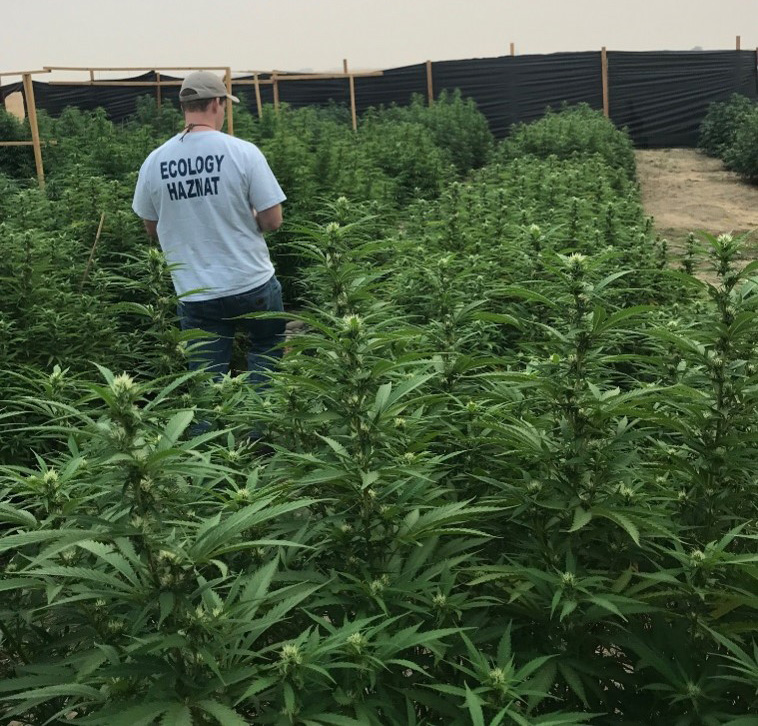
Oil has always been the main focus of Ecology’s Spill Prevention, Preparedness and Response Program, which was established in 1997 to respond to spills of petroleum products. However, the program also responds to releases of other toxic and hazardous material, much of which comes from illegal drug manufacturing. When law enforcement is called in to a site, they regularly include Ecology’s spill responders to protect the safety of the operational team and ensure proper disposal of these materials.
“It is always a moving target,” said Alison Meyers, Response Section Southwest lead. “There is always a new and different drug out there that someone is trying to manufacture. Each one comes with a different nasty chemical that is harmful to human health and the environment, so we’re always educating ourselves and adjusting our response tactics to handling new threats.”
Increase in meth labs
In the late '90s and early 2000s, Ecology saw an increase in field responses to methamphetamine labs. Clandestine drug labs have a number of acids, bases, solvents, and heavy metals that are hazardous to the environment and human health. When these chemicals are not stored or disposed of properly — often the case in a drug lab — they can leak into the environment, cause fires, get into waterbodies, or threaten wildlife. The number of cases strained the Spills Program’s resources in those early years, when meth labs were doubling every year or so.
Recognizing the need, the Legislature directed an additional $3.4 million to the program to address this workload increase. Fortunately, state laws were enacted to control precursor chemicals, such as anhydrous ammonia and pseudoephedrine, and the number of drug lab responses began to decrease.
Ecology responders accept an award for cost savings in drug lab responses from Governor Gary Locke in 2001.
Marijuana farms
Though the number of meth labs has continued to fall, Ecology remains actively involved with other drug operations. In early 2016, the Washington State Patrol contacted the Spills Program because they were beginning to see chemicals that were making officers sick in other parts of the country, and they wanted to be prepared. Since then, Ecology regularly responds alongside law enforcement and has trained officers from numerous agencies about the dangerous chemicals used in drug operations.
An Ecology responder is airlifted to a marijuana grow operation in a remote location.
Ecology is frequently called in to illegal marijuana farms to help remove pesticides, fungicides, corrosive materials, and contact poisons — chemicals that are considered dangerous waste under state law. Anyone coming into contact with these could get burned or poisoned, and they are also toxic by inhalation. Besides common household chemicals, responders have also seen compounds in quantities so large that they fall under EPA regulation and should only be applied by a licensed applicator, as well as substances that are banned in the United States.
Ecology responders and the chemicals collected in Operation Green Jade.
"We’ve seen an increase in combination operations, too,” said spill responder Andy Wilson. “Often, if a place is growing marijuana, it’s also making hash oil, or maybe also making meth. We even found a place making counterfeit Viagra pills.” Ecology responders and their partners respond to an illegal steroid manufacturing operation in 2019
Throughout 2020, we’re marking our agency’s 50th anniversary with stories on how Washington state’s commitment to environmental protection has developed, and the results that commitment has achieved.


